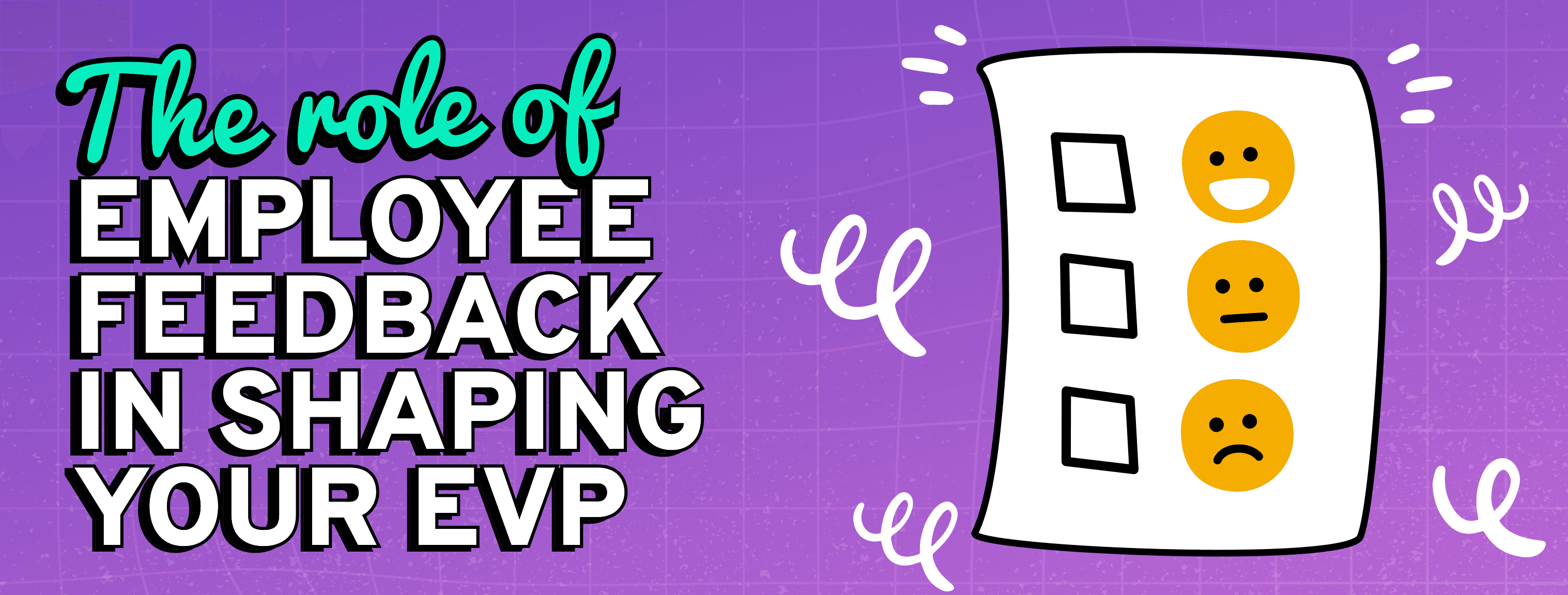The Role Of Employee Feedback In Shaping Your EVP
24th May 2023

Attracting and retaining top talent has become more challenging than ever before. This is where having a killer Employee Value Proposition (EVP) comes in. One of the key ingredients that play a huge role in crafting your EVP is employee feedback; by actively collecting and implementing feedback, companies can shape their EVP around company values and goals alongside the expectations of their employees. We believe honest feedback to understand the true experiences of your team's working life is key; that's why our Flexa verification process includes an employee survey too.
Understanding employee feedback
Employee feedback goes way beyond thoughts and opinions; it holds the key to understanding your employees on a much deeper level. By actively collecting feedback, you can gain valuable data and insights into their experiences, expectations and suggestions for improvement. This can help you create an EVP that resonates with your employees to drive your company forward. Here are some important points to consider when thinking about employee feedback.
1. Create a feedback culture
First, you need a create a culture where feedback and open communication is encouraged. Employees must feel comfortable expressing their opinions without worrying about whether it will impact them in a negative way, and they need to know that their feedback is genuinely valued. Creating multiple channels for feedback, both formal and informal, can provide different opportunities for employees to share their thoughts; regular anonymous surveys, monthly 1-1 meetings, suggestion boxes and focus groups are a great way to do this.
2. Listen with empathy
Empathy is a crucial management skill; when employees share their feedback, it’s important that you listen attentively and with empathy. It's not just about hearing their words; it's about understanding the underlying sentiments and experiences being brought forward. Take the time to actively engage with the feedback, acknowledging both positive and negative aspects. By demonstrating that feedback is genuinely heard and appreciated, you can build a relationship of trust which creates an environment where employees are more likely to provide honest and constructive feedback in the future.
3. Identify themes and patterns
Analysing employee feedback is critical in helping you to identify recurring themes and patterns that tap into employees’ needs and pain points. Look for common threads in their feedback, whether related to work-life balance, professional development, recognition, processes or communication. These themes will guide you in aligning your EVP to address the most pressing concerns of your team.
Shaping your EVP with employee feedback
It's all well and good collecting and analysing feedback, but if it sits in a folder on your computer somewhere, it becomes nothing more than untapped potential and missed opportunities for growth and improvement. So what next?
Address pain points and celebrate success 🎯
Feedback can highlight areas within your company that need improvement. It may reveal pain points such as unclear expectations around roles and responsibilities, poor management practices or a lack of flexibility, trust and autonomy. By addressing these pain points, you can demonstrate your commitment to creating a better workplace environment and a stronger EVP. It’s not all doom and gloom; feedback can also shed light on what is working well, allowing you to celebrate successes and reinforce the positive aspects of your EVP.
Tailor your benefits and rewards to find that sweet spot 🍬
Employee feedback is a treasure trove when it comes to understanding the benefits and rewards that make your employees jump for joy. Whether it's flexible working hours, or professional development opportunities, aligning your offerings with what your employees desire most can boost overall engagement and satisfaction. And guess what? A happy team enhances your EVP to help keep those all-star employees sticking around.
Improving communication and transparency to break down those walls 🧱
When employees share their feedback, it's not just about hearing their thoughts; it's about listening, taking action, and creating a culture of open communication. Employee feedback often shines the spotlight on communication gaps and transparency issues. By tackling concerns head-on and implementing effective communication strategies, you build trust and boost morale, which can contribute to a strong EVP. After all, who wouldn't want to work for a company where they feel valued and heard?
Enhance career development opportunities to fuel ambitions 📈
Employee feedback is like a roadmap to understanding your employees' career goals and their hunger for growth. By tapping into this, you can align employee expectations to create clear paths for progression; this approach makes sure that your EVP attracts ambitious talent who want to flourish. Let’s take Tyk as an example; they offer all employees a personal development coach to help them towards achieving their personal and professional goals. Remember, a company that invests in its employees' growth is a company that's worth their loyalty.
Employee feedback is not a one-time thing. It's an ongoing process that keeps the wheels of continuous improvement turning. When you regularly collect and action feedback, you show your dedication to improvement. So make sure you have a plan in place to regularly measure and evaluate how the changes based on feedback are impacting your EVP. This way, you're always in a place where you’re refining and enhancing your EVP to meet the ever-evolving expectations of your employees. Staying ahead of the game means staying in tune with your most important asset – your team.